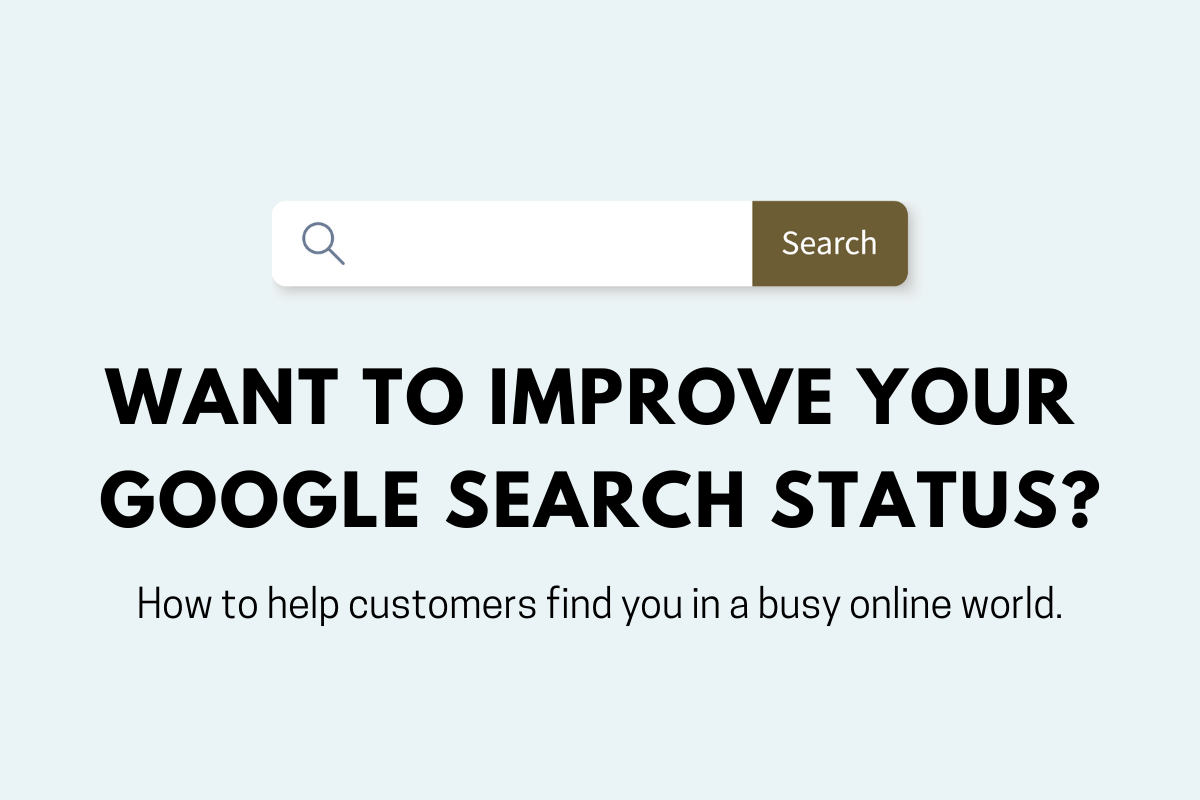This just happens to be our most popular question. And it’s an important one! A business can’t just launch a website and hope it will show up. You have to take certain steps to appear on Google and rank competitively.
Improve SEO With ALINE
So, how does a business show up on Google?
The short answer is: you can’t control your rankings.
Google uses their own algorithm which they keep under lock and key. But you can take a few actions for your business to “look good” to Google and to ensure you’re doing everything you can to get higher rankings.
The second, slightly longer answer is: how much money are you willing to spend?
The search results at the top of the page are almost always paid ads (noted with the word "Ad" in bold next to the website URL). This means that companies willing to spend money on Google Ads will have a competitive edge in showing up above competitors in search results. Check out ALINE’s recent case study on how much engagement was increased with a targeted ad spend. However, even on a budget, you can still influence Google with organic efforts and basic directory management.
Know Your Keywords to Improve Search
Keywords are the terms that you know (from research) that people are looking for. When you include the right keywords, you improve your Search Engine Optimization (SEO) and therefore appear higher in Google search results. What kinds of keywords should you be including?
- Short-tail Keywords: These are the one- and two-word phrases that people often use when conducting a Google search. Examples could be “slippers” or “sun hat.”
- Long-tail Keywords: These are the four- and five-word phrases used in the same manner as above. Long-tail keywords actually make up 70% of search traffic, and often lead to improved ROI for your SEO. They are based on the importance of questions that people ask. For example "what is the most durable kitchen surface material?" and “custom live-edge wood countertops.”
- General & Specific Keywords: General keywords are broader and have the goal of casting a wider net. A general keyword could be something like “red shoes” while a more specific keyword would be something like “red stiletto heels.”
- Geotargeting: Geotargeting uses location data to reach customers in a certain region, city or even neighborhood. Adding “near me” to your search will target individuals to your geo-targeted terms. For businesses that rely on in-person shoppers, or foot traffic, geotargeting is an absolute must.
- Your Company Name: It’s vitally important to include your company’s brand name as a keyword in your search advertising. This is important to:
- Increase the frequency that individuals find your brand.
- Allow for more control over your brand campaign.
Using Keywords Effectively
Now, let’s apply the keywords above to optimize your company’s Google rankings:
- Write High-Quality Metadata: Metadata refers to the title and description of each of your webpages, which you write in the back-end website program. Metadata is one of the top areas searched by Google bots to understand what a page is about and how to rank it in search. Meta titles and descriptions should contain your business’ top-ranking keywords. Additionally, the meta descriptions are often pulled by Google in search results, so users use this description to decide if a page is relevant. Check out our ALINE Blog to find best practices for writing meta data.

- Make your Website Engaging: The more time users spend on a site, and the more buttons they click on, the more valuable Google will think your site is. Sites can improve engagement by having readable, interesting text (no longer do pages need to be short, but they do need to be readable), by having useful information that users want to access, and by having good design that serves users’ needs. Design that improves usability includes clear buttons, clear portals and clear navigation. Content that helps improve SEO includes lots of keywords but is still easy to read and helpful. Also, your website needs to have content in order to optimize it! Write quality content about your services and products so you can use your target keywords effectively and naturally, while also providing helpful information for customers. For tips on how to write engaging content, check out our blog on how to write blogs for growth (great content tips apply to all pages, not just blogs).
- Label Photos: Search engine bots scan photos as well as text. When you upload photos, add descriptions on the back end (in programming) and on the front end, web-facing (as captions). These descriptions and captions give you another option to include keywords.
Final Steps to Help People Find You
Let’s recap: you’ve optimized your website with targeted search terms, metadata, engaging content, and you’ve labeled your photos. Now what? There are just a few final steps to make sure that Google searchers find you.
- Update all relevant online directories for your industry, including your full company information and several engaging photos.
- Update business listings on all map programs, as these are valuable for local voice search. Devices such as Alexa, Siri and Google Maps pull from Apple Maps, Bing Places, Google, and Yelp, so be sure to have listings on all four sites.
- Update, optimize and post updates to Google My Business (GMB). We created a detailed one-pager on how to create a great GMB page. Just contact us to receive it! Post new photos and updates periodically on GMB. Request reviews and respond as needed. Work with Google to remove any slanderous or inappropriate reviews quickly.
- Make and update listings on Yelp and Facebook. Even if you don’t plan to use these sites, you should still have an updated page on each. Add full descriptions, hours, and photos. Facebook is often one of the top search results for a company’s name, and some users do all their local search within Facebook, so it’s important to have a completed page (it’s even better to post on it regularly).
To conclude, we can’t guarantee any results, but you can take steps to be as findable as possible on Google search. Also, know your industry and competitors: you might never rank highly for extremely popular national keywords, but you can rank highly on a specific geo-targeted version of that search if your site is optimized with that content.
Connect with ALINE
Have questions or need help with your SEO? Reach out to our team at ALINE for any of your SEO or digital marketing needs!


 Claiborne Linvill
Claiborne Linvill
